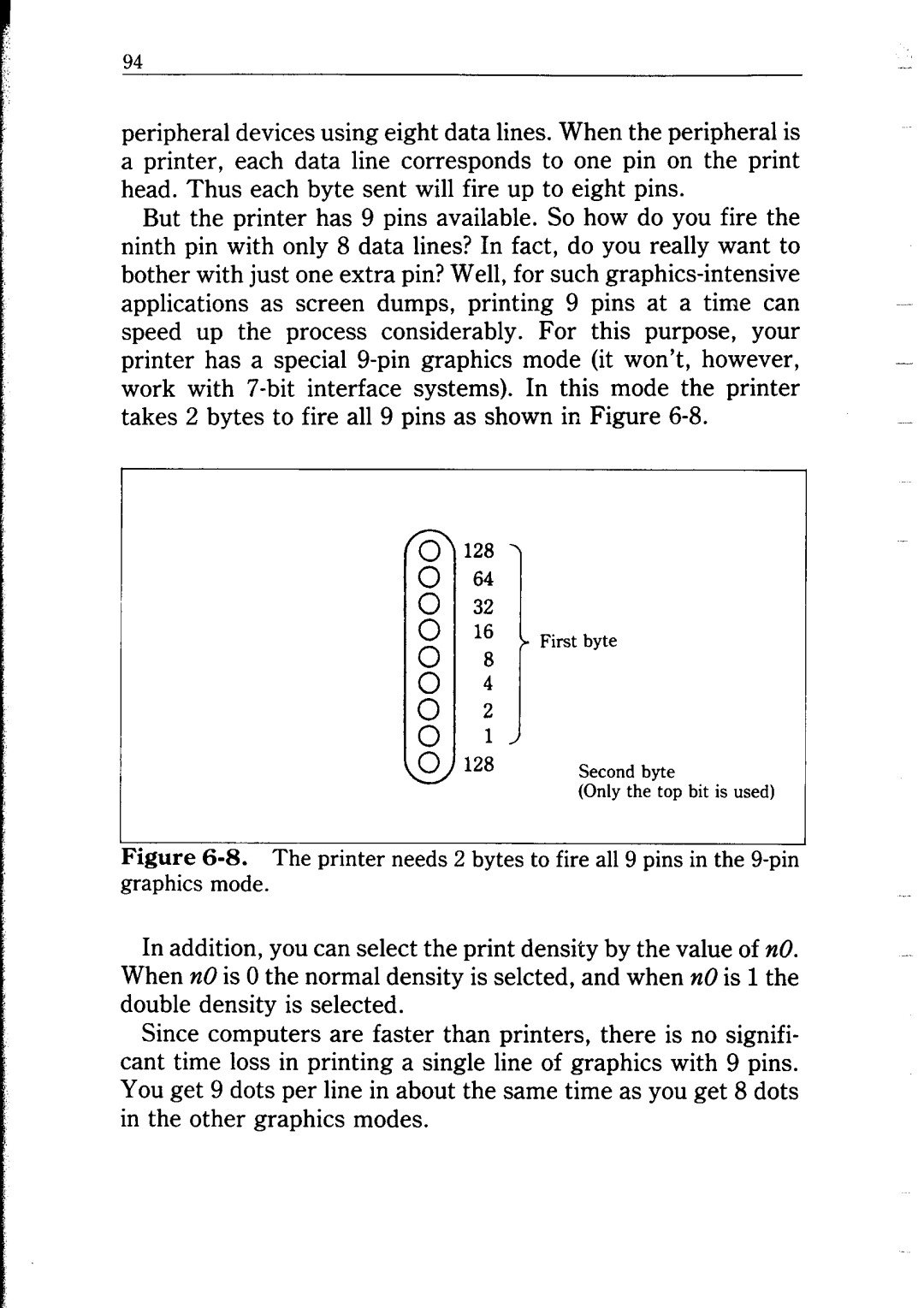
94
peripheral devices using eight data lines. When the peripheral is a printer, each data line corresponds to one pin on the print head. Thus each byte sent will fire up to eight pins.
But the printer has 9 pins available. So how do you fire the ninth pin with only 8 data lines? In fact, do you really want to bother with just one extra pin? Well, for such
0 | 128 |
|
| 64 |
|
: | 32 |
|
| 16 | First byte |
: |
| |
8 |
| |
0 | 4 |
|
0 | 2 |
|
| 1 J |
|
E | 128 | Second byte |
Ij
(Only the top bit is used)
Figure 6-8. The printer needs 2 bytes to fire all 9 pins in the g-pin
graphics mode.
In addition, you can select the print density by the value of no. When n0 is 0 the normal density is selcted, and when n0 is 1 the double density is selected.
Since computers are faster than printers, there is no signifi- cant time loss in printing a single line of graphics with 9 pins. You get 9 dots per line in about the same time as you get 8 dots in the other graphics modes.
